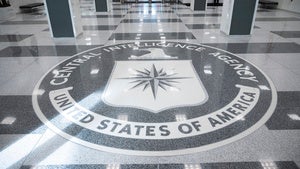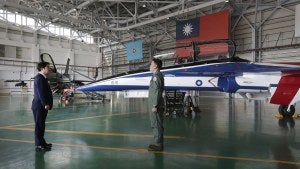Joshua Busby
Senior Nonresident Fellow, Public Opinion and Foreign Policy

About Joshua Busby
Joshua Busby is a professor of public affairs and a distinguished scholar at the Robert S. Strauss Center for International Security and Law at the University of Texas-Austin. From 2021-2023, he served as a senior advisor for climate at the US Department of Defense. He originally joined the LBJ School faculty in fall 2006 as a postdoctoral fellow and lecturer. In 2016, Busby joined the Chicago Council on Global Affairs as a nonresident fellow, and in 2018, he joined the Center for Climate & Security as a senior research fellow.
Before coming to UT, Busby was a research fellow at the Center for Globalization and Governance at Princeton’s School of Public and International Affairs, the Belfer Center for Science and International Affairs at Harvard’s JFK School, and the Foreign Policy Studies program at the Brookings Institution. He defended his dissertation with distinction in the summer of 2004 from Georgetown University, where he also earned his MA.
His first book, entitled Moral Movements and Foreign Policy was published by Cambridge University Press. In his book, Busby seeks to explain why some countries are willing to undertake new international commitments championed by principled advocacy groups, whereas others are not. Substantively, he explores the politics of climate change, debt relief for developing countries, HIV/AIDS, and the International Criminal Court through selected country cases in the advanced industrialized world.
His second book, AIDS Drugs for All: Social Movements and Market Transformations with Ethan Kapstein, was published by Cambridge University Press. The book won the 2014 Don K. Price Award, APSA’s prize for the best book on science, technology, and environmental politics. This book seeks to explain the conditions under which social movements can transform markets to achieve their ends.
His third book, States and Nature: The Effects of Climate Change on Security, was published by Cambridge University Press and received the 2026 Grawemeyer Award for Ideas Improving World Order.
Busby is the author of numerous studies on climate change, national security, and energy policy, published in peer-reviewed academic outlets and by think tanks. Busby was one of the lead researchers in the Strauss Center project on Climate Change and African Political Stability (CCAPS), a $7.6 million grant funded by the US Department of Defense. He was also the principal investigator of Complex Emergencies and Political Stability in Asia (CEPSA), a three-year, $1.9 million project funded by the Department of Defense. He has also written on US-China relations on climate change for CNAS, Resources for the Future, and the Paulson Institute.
Busby is a life member of the Council on Foreign Relations. He served in the Peace Corps in Ecuador, worked in Nicaragua, and consulted for the Inter-American Development Bank. Before working with the Peace Corps, he was a Marshall Scholar at the University of East Anglia (Norwich, England), where he completed a second BA (with honors) in development studies. He completed his first BA (with highest distinction) at the University of North Carolina at Chapel Hill in political science and biology.


Latest Commentary
No Easy Solutions to Europe’s Geopolitical Trilemma
Trump's National Defense Strategy Tries to Imagine Climate Change Away